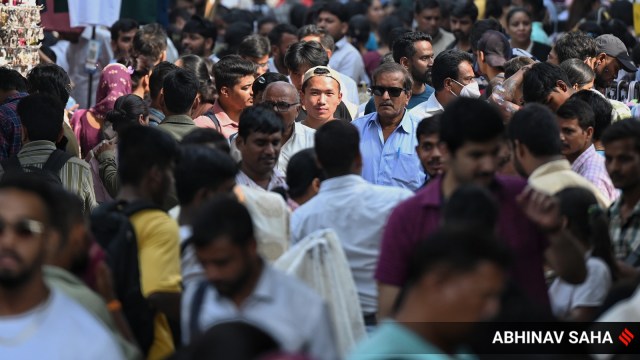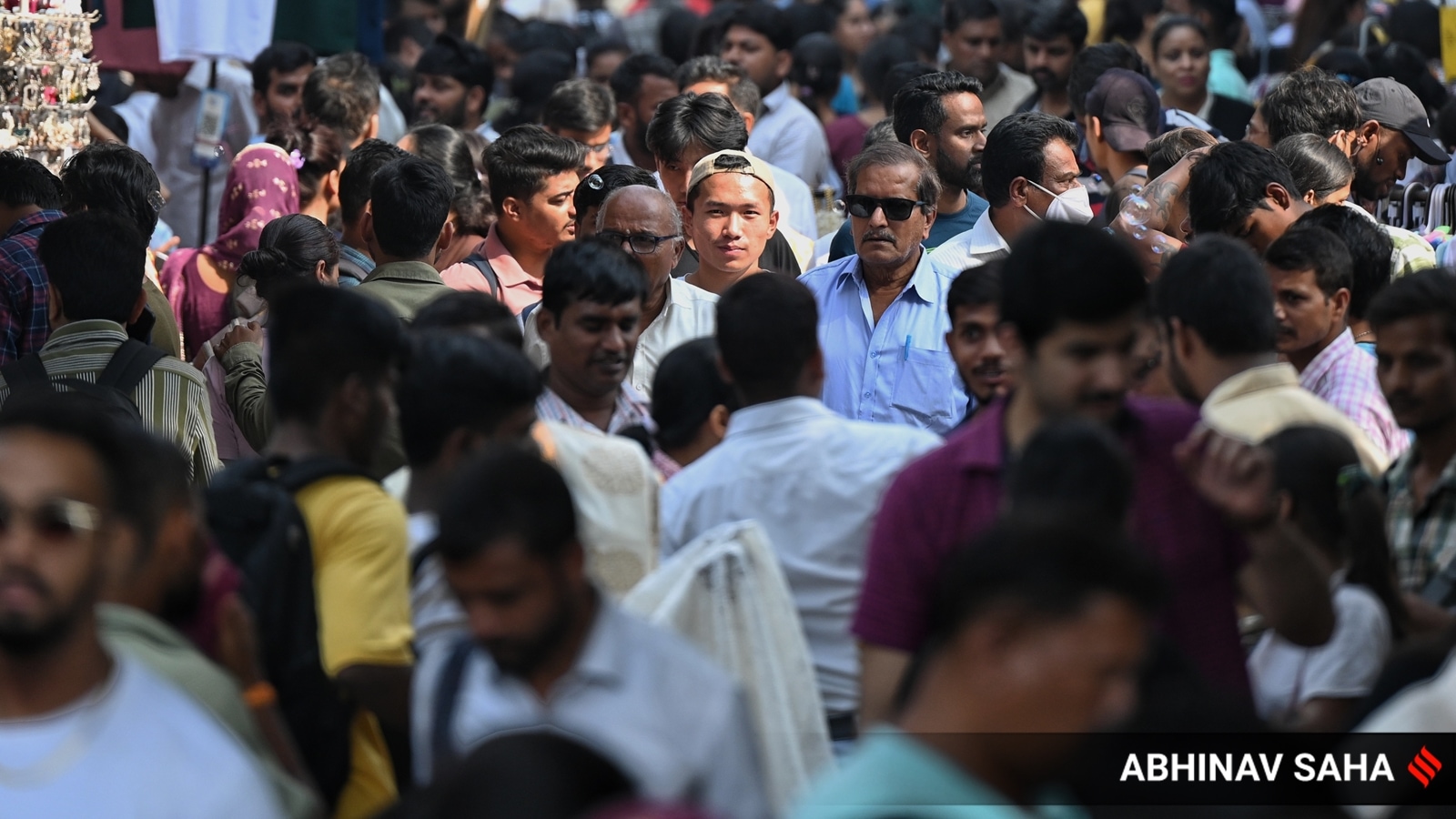

Abhik Bhattacharya
Jan 24, 2025 18:15 IST First published on: Jan 24, 2025 at 18:15 IST
In his much-acclaimed work Seeing Like a State, American political scientist James C Scott asks, “Why [has] the state always seemed to be the enemy of people who move around, to put it crudely… Nomads and pastoralists, hunter-gatherers, Gypsies, vagrants, homeless people, itinerants, runaway slaves, and serfs have always been a thorn in the side of states.” The answer lies in the ways the state operates — it often creates “others” who can easily be blamed, demonised, and, if needed, deported. The state also creates internal others, but it is easier to “otherise” those who carry the burden of being “outsiders” — both spatially and in the imagination. In the Indian polity, for at least the five decades since the formation of Bangladesh, the phrase “illegal immigrant” has taken this space.
The arrest of an alleged Bangladeshi national who, according to the police, sneaked into actor Saif Ali Khan’s house and stabbed him, adds to the political discourse. Delhi’s Lieutenant Governor, V K Saxena, has asked the police to strengthen their search for Bangladeshi immigrants. It is an extension of his December 10 order when he asked the city’s police commissioner to launch a drive to identify illegal intruders and take action against them. Immediately after the arrest, Delhi BJP chief Virendraa Sachdeva said, “The BJP has been saying from day one that illegal Rohingya and Bangladeshis are a threat to the country. But former Delhi CM Arvind Kejriwal is giving shelter to them.” Rebutting the claims, AAP spokesperson Priyanka Kakkar posted on the social media platform X, “Modi and Amit Shah should apologise to Saif Ali Khan’s family. Bangladeshi immigrants have entered this part of the country due to their total failure.”
The BJP and the AAP had locked horns over illegal immigrants even weeks before the Delhi assembly elections were declared. The Delhi government asked schools to strengthen the verification process to ensure that no illegal immigrant gets admission, while the BJP leadership accused AAP MLA Mohinder Goyal of facilitating Aadhaar cards for Bangladeshi immigrants.
This is not the first time that Delhi elections have witnessed political mudslinging over this issue. In at least three consecutive assembly elections since 1993, Bangladeshi illegal immigrants took centre stage in campaigns. In January 1993, then BJP MP Madan Lal Khurana marched with his supporters to Okhla to remove alleged illegal Bangladeshi settlers. However, it wasn’t just the BJP — the Congress government, under the leadership of P V Narasimha Rao, launched an “action plan” in 1991 to identify and deport illegal immigrants from Bangladesh.
Since the formation of Bangladesh, many Bangladeshi immigrants have settled down in different parts of the country, including Delhi. However, it wasn’t a boiling issue before the early 1990s. In 1989, Jyoti Basu, then chief minister of West Bengal, sent a letter to Rajiv Gandhi expressing his concerns about irregular immigration. But nothing much was done to contain the inflow.
Within a couple of years, the political landscape of the country changed, as did the Congress’s politics. In her 2003 EPW paper, ‘Operation Pushback’, scholar Sujata Ramachandran writes that in the political context of the Ram Janmabhoomi movement, the Congress could not keep away from the conversations on illegal immigration. The politics of communal balancing — Rajiv Gandhi’s efforts to placate both the minority and majority communities through striking down the Shah Bano verdict and opening the gates of the Babri Masjid — contributed to the policy-level change. The identification of “others” seemed politically expedient. A response by M M Jacob, then minister of state in the Ministry of Parliamentary Affairs and Ministry of Home Affairs, on April 23, 1992, corroborates this transition. Whereas in 1989, no illegal immigrants had been deported, in 1990, the number rose to one. But suddenly, in 1991, the number was 118, and the following year — up to April 4, 1992 — it was 172. The Congress, though, failed to reap any benefit from its action plan, also known as “Operation Pushback”, and the BJP won the 1993 Delhi assembly elections, with Khurana becoming chief minister.
most read
The issue cropped up again in the 1998 Delhi elections but in a different context. The Shiv Sena-BJP government in Maharashtra, which assumed office in 1995, had conducted regular drives to deport Bangladeshi immigrants from Mumbai. The home minister, L K Advani, said in Parliament that three batches of Bangladeshi immigrants had been nabbed and deported. But as the BJP-led NDA formed the government at the Centre a few months before the Delhi assembly elections, the party didn’t follow its earlier approach. In 1995, when Khurana apparently went soft on his approach following a Supreme Court order that the government should hear out every person marked as a foreign national, B L Sharma ‘Prem’, BJP MP from the East Delhi constituency, objected and said that the central leadership of the party should take the call, not Khurana. The RSS, however, doubled down on Indian Muslims. In its September 13, 1998 issue, Organiser wrote, “It is the responsibility and duty of Muslims in various localities to inform the police about such infiltrators residing in their midst,” adding, “had the Muslim community taken the initiative to ferret out such infiltration, what an amount of bother and unpleasantness would have been saved”! On this occasion, the BJP failed to form the government and Sheila Dikshit became the Delhi CM for the first time.
In 2003, illegal immigrants became an issue after the Delhi HC pulled up the Congress government for the presence of approximately 13 lakh Bangladeshi immigrants in the city. Khurana immediately made it a poll plank and said the Dikshit government was giving ration cards to illegal immigrants to gain votes. He accused her of adding 10 lakh new voters to the list. Khurana, along with BJP spokesperson V K Malhotra, also met with the chief election commissioner, J M Lyngdoh, to highlight the issue. Advani said there were around 1.5 crore Bangladeshi illegal immigrants in the country, and called them a “major internal security threat”. But Dikshit’s pitch on governance succeeded, and the Congress retained power. In 2008, the BJP brought up the issue in its poll manifesto, saying, “Illegal infiltration would be severely curbed and illegal foreigners would be identified and deported.”
In 2013, Indian politics witnessed a major shift, with the anti-corruption movement taking centre stage. The success of the AAP led to the catalysing of narratives centred on development, corruption, and accountability. The subsequent fall of the Congress and resurgence of the BJP also made the issue redundant, at least for a while. The elections of 2015 and 2020 were fought on welfare schemes and developmental politics. As the discourse of infrastructural development dies down, with political parties emphasising competitive freebies, the AAP and the BJP have again fallen back on the old tactic. Delhi politics is fraught with many issues — pollution, sanitation, security, employment, health, education. Political parties need not hark back to the issue of illegal migrants for electoral gains.
abhik.bhattacharya@expressindia.com



